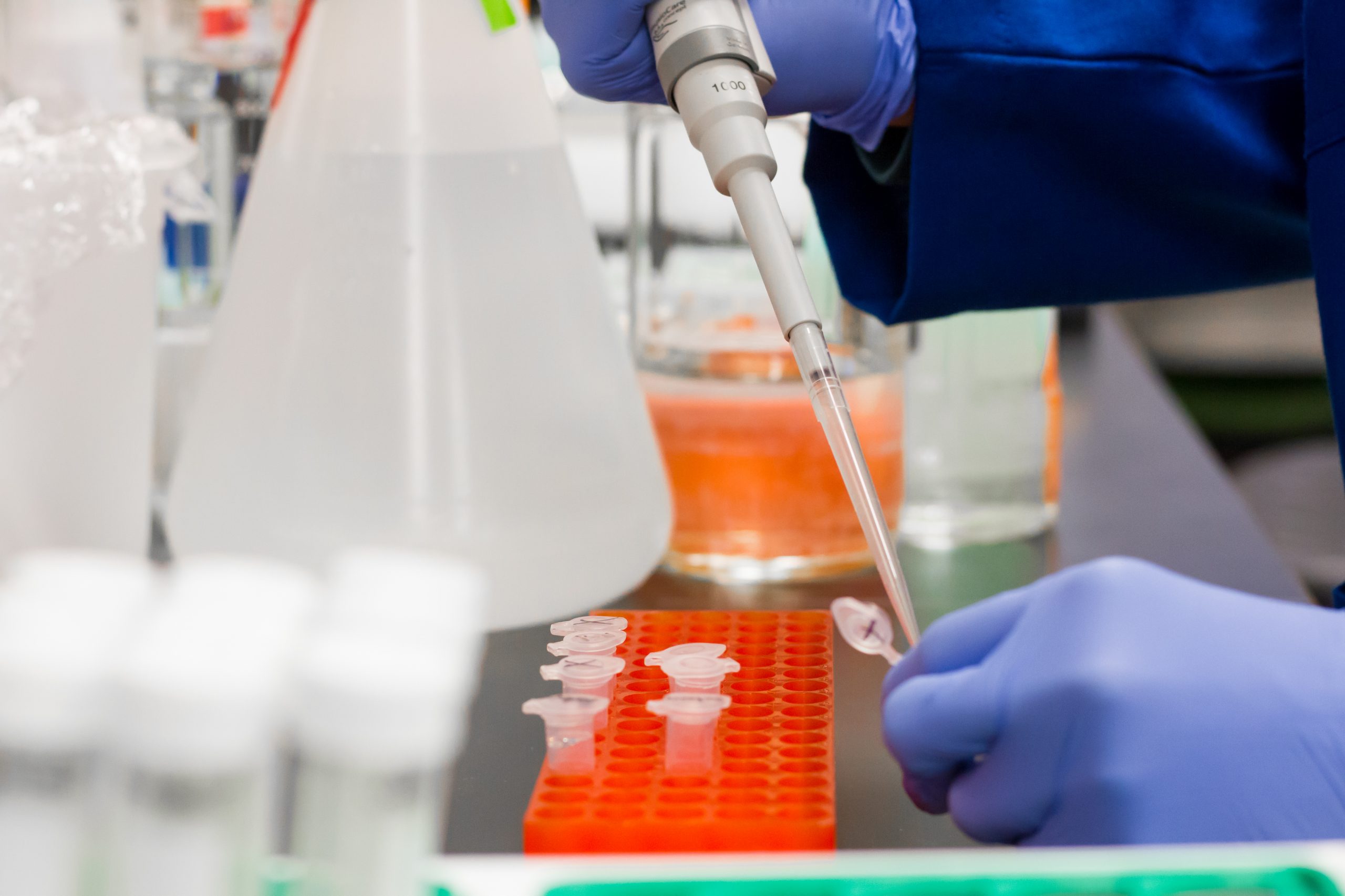
August 23, 2022, by Lexi Earl
Our technology platforms: Ionomics facility
Over the next few weeks we will be featuring stories about our different technology platforms, their work and research, and the facilities available to researchers. These are also featured in our 2021 Annual Report. Today, we turn our attention to the Ionomics Facility.
Based in the Gateway building on our Sutton Bonington campus, the Ionomics Facility provides researchers with large-scale phenotyping methods to decipher the functions of the genes and gene networks that regulate the ionome. This high-throughput elemental phenotyping platform is equipped with state- of-the-art inductively coupled plasma mass spectrometers (ICP-MS) and the sample preparation lab designed specifically for the high throughput preparation of samples for analysis by ICP-MS. The Ionomics Facility offers measurement of the levels of up to 23 metals and non-metals in a given sample that allows researchers to address various biological questions within physiology, ecology, evolution, and other fields.

The ICP-MS in the Ionomics Facility.
The Ionomics Facility works across multiple projects and has contributed to several outstanding works led by Future Food Beacon scientists. In a project led by Dr Gabriel Castrillo and published in Science, elemental phenotyping was used to understand how the interplay between microbiota and root diffusion barriers affects plant mineral nutrient homeostasis. The Ionomics Facility worked with Beacon postdoc Dr Guilhem Reyt on his project revealing the composition and formation of Casparian Strips in plant roots and the implications for mineral nutrient homeostasis. The outcomes of this work were published in Nature Communications and Current Biology. Elemental profiling was also used to study arsenic metabolism and transport in plant roots. This work helped unravel the mechanism and cell type-specific functions of the arsenate reductase HAC1 protein in work published by the Beacon Research Fellow Dr Sina Fischer in the Journal of Experimental Botany.

The Ionomics prep lab
The Ionomics Facility also participated in a research infrastructure project funded by Horizon 2020 EU Programme – the European Plant Phenotyping Network (EPPN2020). This research programme allowed many scientists across the world to establish collaborations and obtain funds to carry out ionomics experiments in the facility. The Ionomics Facility has now completed six out of eight accepted projects, collaborating with the Max Planck Institute, the Cocoa Research Centre at the University of the West Indies, the Kazakh Research Institute of Crop Production, the Vietnam Agricultural Genetics Institute, the Senegalese Institute of Agricultural Research, and the French Institution of Research for Development. These six completed EPPN projects have involved the analysis of over
16,500 samples by ICP-MS at the facility.
No comments yet, fill out a comment to be the first

Leave a Reply